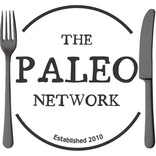What’s So Wrong With Soy?
Are soy beans really that bad for us? So many “healthy” people swear by soy – and it’s certainly portrayed in a lot of mainstream media as a health product.
Soy beans contain a lot of natural toxins. It doesn't matter whether they’re organically grown or genetically modified. The problem with modern soy products is that the factory processing is different from the traditional, time-consuming preparation through fermentation and prolonged boiling, whereby a lot of these toxins are removed. Products such as tempeh, tofu and miso are, if of good quality and a lot less dangerous than modern unfermented soy products, like soy milk. In the current, fast and large-scale production, these toxins stay in the end-product.

Why do people eat soy?
Whilst some people switch due to cow milk allergies or lactose-intolerance, many people switch for the perceived health benefits. The use of soy milk was supposed to be a good alternative to dairy, if we believe the commercials. The irony is that soy itself is in the top ten of foods that give the highest change of allergies!
Vegetarians and vegans often use soy products as dairy products and meat substitutes, particularly due to the high protein content.
The dangers of soy
Soy contains high amounts of phytic acid, that impedes the reception of calcium, magnesium, copper, iron and zinc. Although the pro-soy lobby argues that these minerals can also be found in soy, they are barely absorbed by the body due to the phytic acid content. The anti-nutrients present are not broken down by processes such as steeping, germination or prolonged cooking.
Soy also contains high concentrations of manganese, a chemical element. Some manganese in our food is necessary, but high amounts, such can be found in soy, are associated with neurological damage. It contains almost 200 times as much manganese as breast milk.
Trypsin inhibitors can disrupt the digestion of protein, can negatively influence the function of the pancreas and cause growth problems. Diarrhoea, stomach cramps and bleeding are some of the problems that can occur due to a lack of trypsin.
Vegetable female hormones (phytoestrogens) in soy disrupt the function of the endocrine (internal) glands and might cause infertility and breast cancer.
Cancer patients, especially the ones with hormone-dependant tumours such as breast cancer and prostate cancer, are advised to avoid soy because it can cause the growth of tumours. The phytoestrogens it contains can hinder the function of the thyroid, which causes a risk for a slow working thyroid and even thyroid cancer.
Substances in soy that resemble vitamin B12 are not absorbed by the body and increase the need for vitamin B12. Vitamin B12 is necessary for the production of red blood cells. A shortage of these blood cells can cause severe anemia. Soy increases the need for vitamin D, which is used for building bones and a strong immune system, and something most people are already deficient in.
In modern soy production, it is modified, which produces toxic lysinoalanine and the carcinogen nitrosamine as a result. During the process, glutamic acid is also formed. This is a flavour enhancer and potential neurotoxin. As if this wasn't bad enough, MSG (another flavour enhancer) is added to many soy products.
Soy sauce is popular in many recipes, but is easy to avoid – it can be completely replaced using paleo friendly coconut aminos.
I’d be interested to hear what you think about Soy? Do you avoid it in all forms, or do you occasionally eat fermented soy products?
 |
 |
 |













I gave up soy. I had terrible heart burn and stomach pains. I don’t get them anymore.
I avoid soy at all costs but am horrified that paediatricians prescribe soy formula to babies regularly and as a government professional I cannot advise otherwise (same with the very wrong health food plate). We have to follow NHMRC guidelines, why does it take so long for the mainstream to get the proper information out there..?